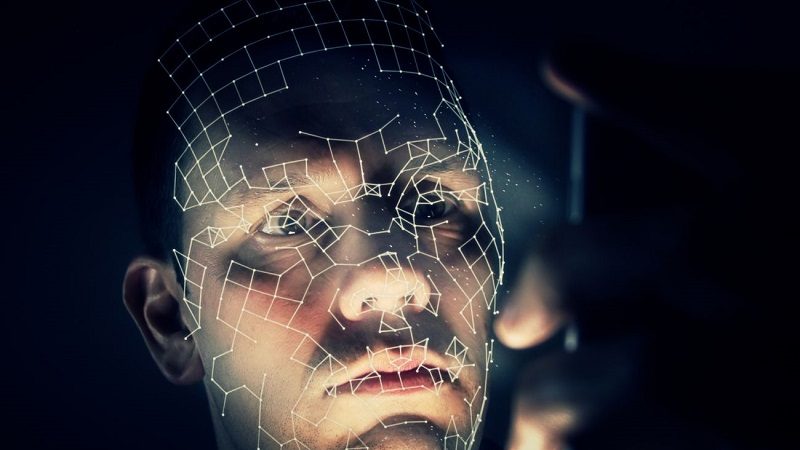In Malta, where everything is upside down and topsy-turvy, this guide is designed as a brief induction into the operational methods of the smallest State in the EU. The ideal dummy is visualised as an outsider (barrani), a person of European origin who’s been instilled with European values since birth. Our weekly articles are aimed at helping you to (somehow) get ‘Malta’.
Prime Minister Joseph Muscat has announced the introduction of facial recognition technology, saying, “the police are doing a good job but there’s a lot of work that still needs to be done to step up enforcement”.
Given that last week, 12 out of 16 police stations were found closed in Gozo because police officers were (apparently) patrolling the streets, questions arise about the full extent of what needs to be done and why officers are (apparently) excessively busy on the streets when statistics by Home Affairs Minister Michael Farrugia show that crime has (apparently) been going down over the last few years. This is yet another case of the facts not quite adding up, a familiar scenario under this present government.
More ‘facts’ that don’t compute are revealed in a report by Big Brother Watch into the Met’s use of facial recognition technology in the UK where 98% of inaccuracies are cited. With many more better trained, better equipped and better resourced police officers than their Maltese counterparts, the Met were shown to have overwhelmingly failed in their attempt to match cameras linked to databases with ‘real life’ faces.
Facial recognition technology involves scanning our most personal feature, our face, and storing this on a police database which, given the blatant fallibility of the software, could see many innocent people accused of crimes they didn’t commit.
One significant malfunction observed in the technology used by the FBI (again, a tad more experienced than the Malta Police) is its routine misidentification of ethnic minorities.
This software defect is doubly shocking when considering Marsa, with its large migrant population, is one of the places targeted by the government’s planned introduction of the new surveillance techniques and where, in addition, there’s recently been an increased police presence.
Not only has facial recognition technology been proven wholly unreliable but, given the Maltese government has announced the piloting of this scheme without any consultation or regulatory control, it poses untold threats to fundamental democratic freedoms.
These are already at stake as evidenced by reports and findings delivered by three EU delegations to Malta and the international freedom of expression delegation, here last month to mark the one year anniversary of the assassination of journalist Daphne Caruana Galizia.
The anti-democratic components of facial recognition technology are foregrounded by the Malta IT Law Association who argue that the plans go against both Maltese and EU legislation.
Given that this week, Muscat attended the China International Import Expo where, accompanied by his chief of staff Keith Schembri who is facing multiple accusations of money-laundering, he met the Chinese President, perhaps this government is looking elsewhere for guidance.
After all, Malta’s facial recognition technology is to be installed in partnership with Huawei, already under attack for its allegiance to Chinese state intelligence agencies.
The use of high-tech surveillance systems to allocate social credit scores to its citizens is currently being tested out in China which, if successful, could result in ‘the world’s first digital dictatorship’. Perhaps just as insidious is the possibility that China overstates its controlling capacities so that “even the perception of surveillance can keep the public in line”.
This is echoed by Martha Spurrier, director of Liberty, in her condemnation of facial recognition technology: “It’s not hard to imagine the chilling effect its unrestricted use will have. Constant surveillance leads to people self-censoring lawful behaviour. Stealthily, these measures curb our right to protest, speak freely and dissent. They shape our behaviour in ways that corrode the heart of our democratic freedoms”.
In Malta, the right to protest has already been curbed through the nightly and government-ordered removal of flowers and candles from the protest memorial in Valletta long since barricaded on the orders of the Justice Minister. Protest banners are habitually torn down. Inquiries into money laundering at the highest level are overtly obstructed by political cronyism in the law courts.
Speaking freely and dissenting has to be in taken in the context of government-controlled media, ludicrously so in terms of recent revelations that the evidence to back accusations against the Opposition’s Head of Delegation at the European Parliament David Casa were written on the computer of Media Today’s managing editor Saviour Balzan.
To add to the overall problem, self-censorship of lawful behaviour exists as an integral feature of Maltese ‘culture’ whereby fear, omertà, self-interest, amoral familism or a combination of these serve as efficient gags on protest and keep people willingly, greedily, spitefully, ignorantly and/or complacently demanding ‘business as usual’.
Facial recognition technology might merely add another layer to what’s already an effectively controlled society.












